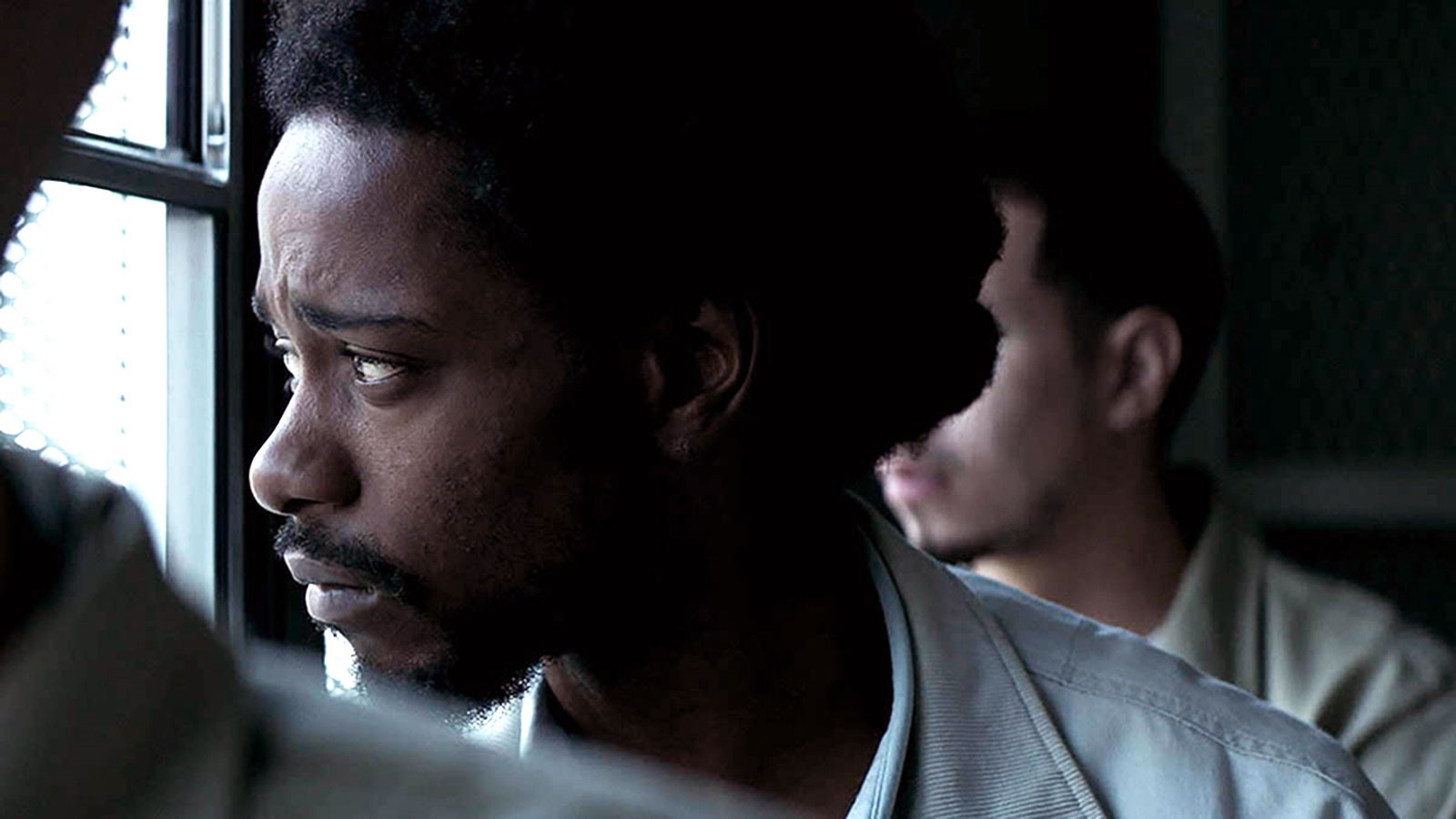Crown Heights has all the heft and gravitas necessary to be an important film. It covers the scope of a real life tragedy that is indicative of a larger social issue that has remained largely unaddressed since the film’s events, and it puts a very human face on a widespread social epidemic. As a message movie alone, Crown Heights should be an easy sell, a personal epic painted in archetype so as to make it universally relatable to an audience potentially unfamiliar with what it depicts. Unfortunately, that’s not how Crown Heights came out, and it isn’t for a lack of effort.
In 1980, eighteen-year-old Colin Warner (here portrayed by Lakeith Stanfield) was arrested for a murder that he was nowhere near the scene of. Despite an unethically weak case, Warner was tried and convicted right alongside the actual murderer and spent twenty-one years in prison for this crime that he did not commit. The film chronicles Warner’s adjustment to prison life and his pursuit of the appeals process, as well as a parallel and subsequent investigation by his best friend, Carl King (Nnamdi Asomugha).
The elements should all be in place for a legal and personal epic that spans years and highlights the growth and hope that Warner held on to over the course of his wrongful incarceration. A large supporting cast of known and unknown character actors flesh out the narrative and offer their own piece of the puzzle that is Colin Warner’s life. Adapting a This American Life podcast, it seems that writer-director Matt Ruskin has covered every aspect of the story with specificity and apparent accuracy. …So why does Crown Heights feel so flat?
The answer comes down to attempting to do too much with too little time. Given the years of story at play, Warner’s narrative should allow us to struggle and grow with him, but in an effort to cram every detail of Warner’s experience into the film Ruskin has robbed much of it of its emotional heft. There are scenes that last only a couple seconds, communicating their tidbit of relevant or irrelevant information before cutting to another, equally brief scene. This makes every cut between scenes feel like a friend pausing their story to say “and then this happened,” lurching along between discordant points that in their collage do actually tell a full story, but one bereft of emotional attachment because we haven’t been allowed to connect with any of the characters. Even Warner, our ostensible lead, is only defined by his protestations of innocence, which does little to make him an interesting or compelling character.
If this writer had to hazard a guess, Crown Heights is the victim of shooting too much footage and an editor forced to leave a bare minimum of each scene to allow for all the narrative information to be communicated. This issue thankfully alleviates during the film’s final third, which shifts focus from Warner to King in his investigation outside the prison, but by then it feels like too little too late. Colin Warner’s story deserves to be heard, but it also deserved a better presentation that kept its audience’s engagement. Perhaps it’s better to just track down the podcast.













